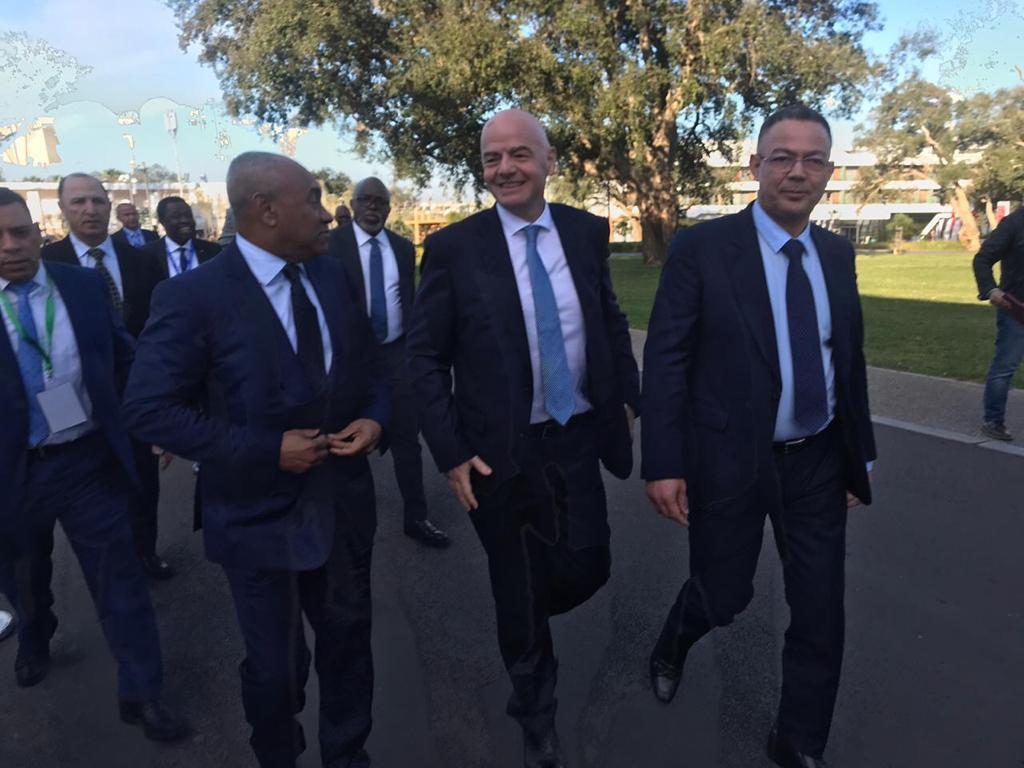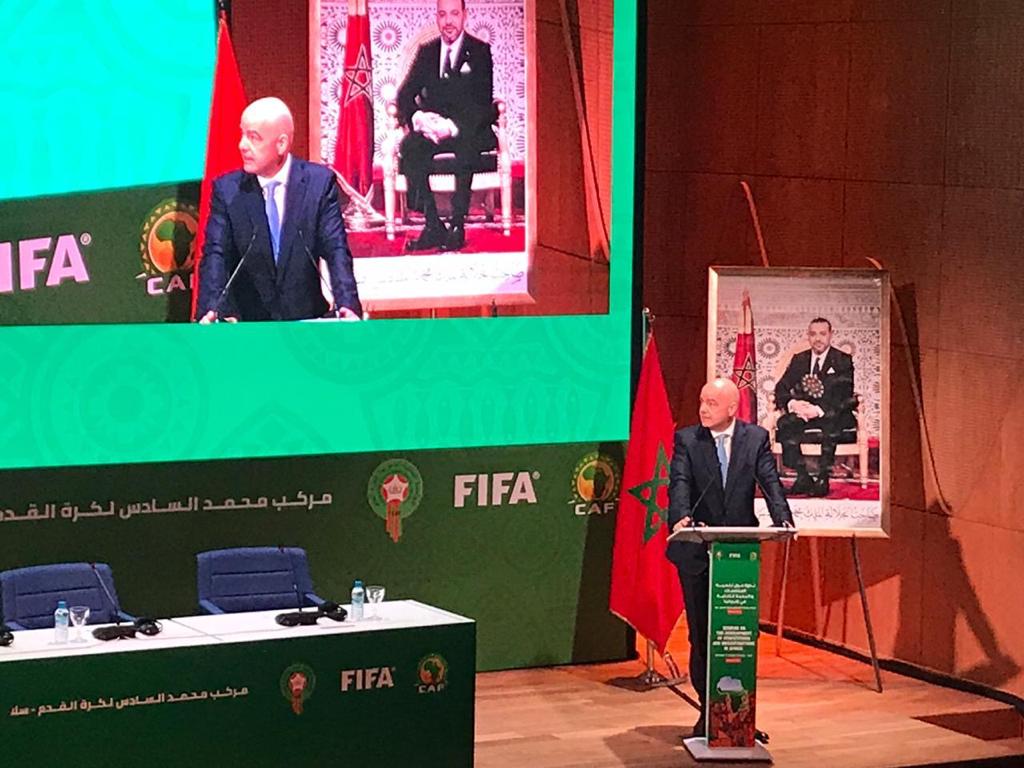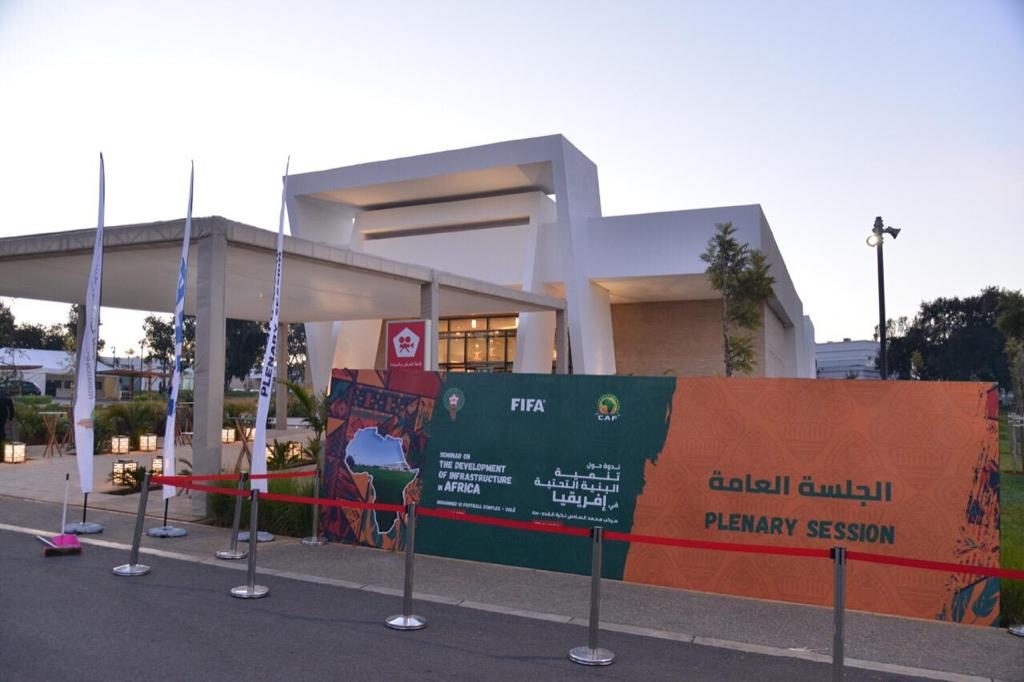By Osasu Obayiuwana
February 3 – The powers and influence of the 23-man executive committee of the Confederation of African Football (CAF), to decide the affairs of the organisation and the continental game, are to be whittled down, if it is acceptable to CAF’s General Assembly.
Under Point 2 of the 100-point FIFA/CAF plan, which is a consequence of the six-month Cairo stay of Fatma Samoura, FIFA’s Secretary-General, as the organisation’s General Delegate to CAF/Africa, it is recommended that “Article 23.2 [of the] CAF Statutes” be amended.
This is “to relieve the CAF Executive Committee from management and administration responsibilities; empower the CAF Administration to take key decisions on all administrative matters; make the Executive Committee responsible for overseeing the implementation of the reforms.”
Such a constitutional amendment would empower the General Secretary – who would become the Chief Executive of the organisation – as well as key management staff, to run the affairs of CAF, with minimal interference from the executive committee.

This change, which will require a vote from the CAF General Assembly, in order to alter the powers and responsibilities of the Executive Committee, is supposed to take place by June 30.
A further constitutional amendment is also recommended “to clarify the role and required competencies for the [CAF] Executive Committee.”
The roles of CAF’s standing committees are also expected to be reduced, as they would only be “responsible for offering strategic guidance and subject matter expertise to CAF and limit their decision-making powers, with regard to the CAF Administration.”
FIFA president Gianni Infantino, speaking on Saturday at Morocco’s National Technical Centre in Rabat, raised eyebrows over a number of his proposals for Africa.
One of them was for an African club Super League of 20 teams, in which each club would contribute $100 million, over five years, to be a member of the competition, raising $2 billion for CAF.
The suggestion caused consternation. Clubs enter the current CAF competitions with the expectation of making money, as is the case around the world. The Infantino proposal suggests they would pay a franchise fee to enter the competition, on top of other costs.
Infantino also raised the highly contentious proposal in Africa that the much-loved, though often controversially-organised, Africa Cup of Nations (AFCON) should change to a four-year schedule rather than its current two.
The idea that the AFCON would be re-organised to play less, rather than more, international football seems contradictory for a governing body whose primary purpose is to stimulate and provide a foundation for the international game.
But it is the appointment of the 20 elite CAF referees, who Infantino said will receive a full-time FIFA wage, that will be implemented sooner.
The select group are to be known by the end of March and would be expected to take charge of the remaining 2021 AFCON 2022 World Cup qualifiers.
“CAF is going to be in charge of the referees, not FIFA. It is just that FIFA will be the one that will be paying them a full-time wage,” said a well-respected authority on refereeing in the continent, with knowledge of the reforms.
“This plan has been on the cards for a while now. But CAF said that it could not pay for it, so FIFA has stepped in.”
Contact the writer of this story at moc.l1751518239labto1751518239ofdlr1751518239owedi1751518239sni@a1751518239nawui1751518239yabo.1751518239usaso1751518239


